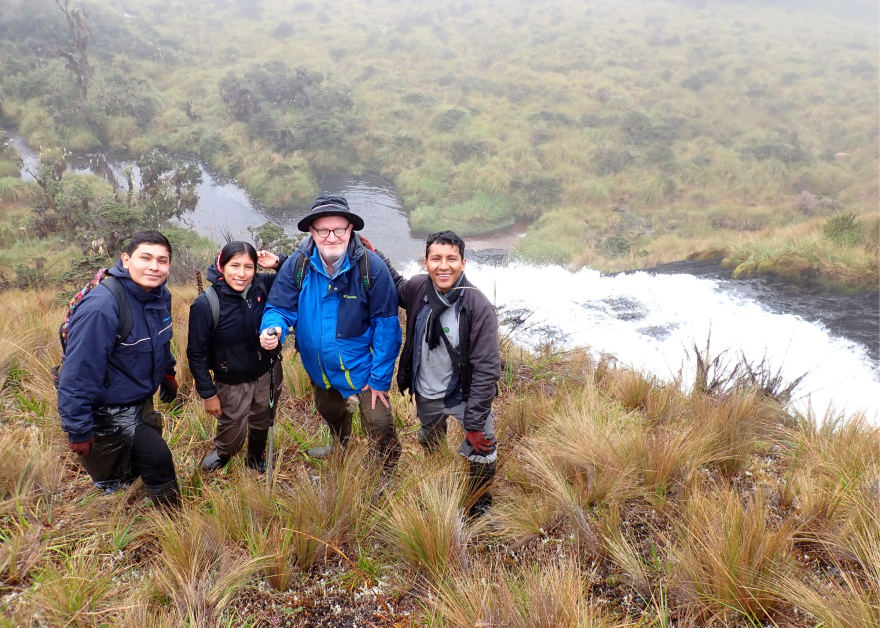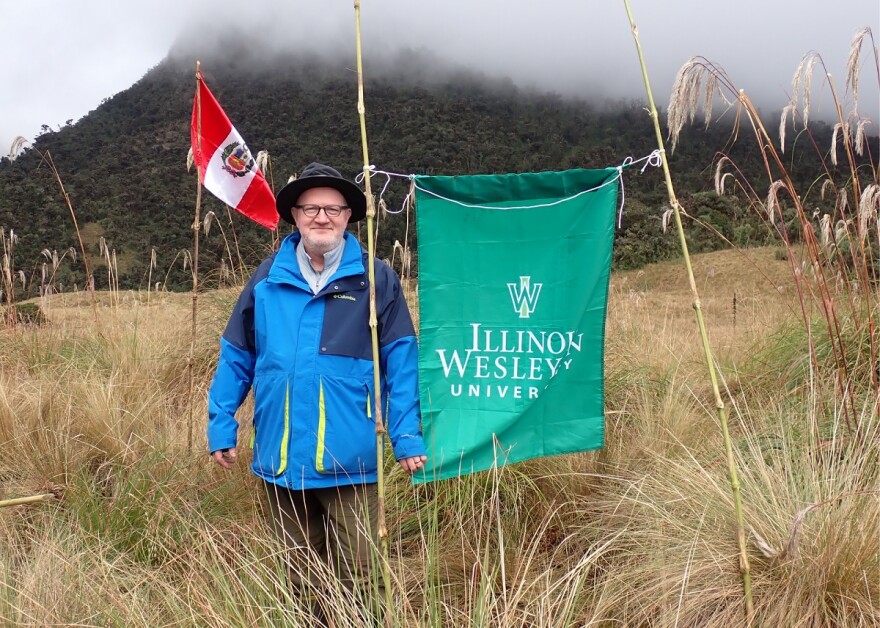A biology professor at Illinois Wesleyan University has discovered a new lizard species on a trip to Peru.
After three long years of planning, Edgar Lehr spent two weeks camping in Otishi National Park, at an elevation above 10,000 feet, with a team of Peruvian biologists to study reptiles and amphibians.
On the second day of the trip, the team was looking through grass and moss when it discovered an odd-looking species of lizard. “Then we found them and they were so differently colored to what I had seen before. Black belly, it was immediately clear that this was a new species,” Lehr said in an interview on IPR’s the 21st Show.

Lehr has helped discover more than 100 species during his career and does not plan on stopping, saying his work is crucial to the protection of amphibians and reptiles, as well as sustaining further research in Peru.
“Biodiversity research is very important because you can only protect something that you know, and this will justify the protection of the area,” he said.
Lehr has been named a 2022-23 Fulbright Scholar that will enable him to return to Peru for more research.
He also was given the honor of naming the new lizard species. Expedition findings will be posted in a scholarly journal later this year as well as the unveiling of the species name.
Finding a new species proved not the only impactful occurrence during the trip. Lehr explained his team had been dropped within close proximity of drug traffickers in the national park.
On the fourth day of the expedition, the team came across an abandoned campsite with traces of cocaine paste. The biologists knew they were not alone after picking up a signal on their walkie-talkies of two men talking.
“We were very concerned because those walkie-talkies usually can get signals for about five kilometers maximum, so very close,” Lahr said.
The team decided to cancel the remainder of the expedition shortly after. “On one morning, very early, about 5:25, we were still sleeping in our tents. We heard a drone flying over our camp. And so they knew where we were and spying on us,” Lehr said.
Rescue crews came four days later to pick up the team, ending the expedition.

